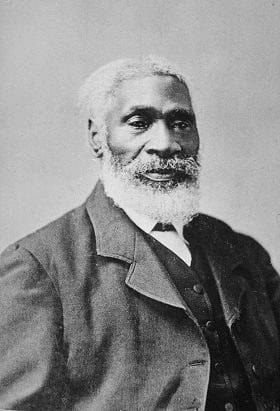CPD Supervisors Question Racial Disparities in Disciplinary Action
According to the Street Committee rumblings from inside the Columbus Police Department (CPD) are growing louder as supervisors raise serious

For years, we’ve been using the name “Uncle Tom” to insult our own people. We’ve called folks “Uncle Tom” when we think they’re too soft, too compliant or too eager to please white folks. It’s become a cultural dagger aimed at those we believe have abandoned the race.
But here’s the truth: We’ve been dragging the wrong man.
If you’ve never read Harriet Beecher Stowe’s Uncle Tom’s Cabin, don’t feel bad—many haven’t. That’s how this whole misunderstanding began. Because if you had read it, you’d know that Uncle Tom was no traitor. He was a martyr.
Tom was a man of deep faith, integrity and moral courage. He refused to betray two enslaved women who had escaped. He was beaten to death for protecting them. He chose death over dishonor. He chose loyalty over survival. He prayed for his enemies. He comforted the broken. He lifted others, even while he was being crushed.

That is not the behavior of a coward. That is the heart of a hero.
So, who were the real sellouts?
Let’s call them by name: Sambo and Quimbo
These were the enslaved overseers who did the master’s dirty work. They were brutal to their own people—not out of ignorance, but to gain favor with the slaveholder. They mocked, beat and ultimately helped murder Uncle Tom. They represent the kind of person who turn against their own community for scraps from the table of power.
They were the ones who betrayed their own people.
Let’s be clear: Sambo and Quimbo were not victims of circumstance—they were instruments of oppression. While Tom held firm to his principles, they sold their souls for temporary comfort. And yet somehow, Tom’s name became the slur? That’s not just wrong—it’s historical injustice.
We’ve allowed whitewashed rewrites, minstrel shows and misinformed pop culture to flip the narrative. And sadly, we’ve internalized the lie. So now, when someone in our community doesn’t “act Black enough,” we throw that name like a stone: Uncle Tom.
But here’s what we must understand: Uncle Tom was not a sellout. He was a stand-up man in a bent-over world.
We must stop using his name to tear people down. If someone deserves criticism, let’s give it to them for their actions—not by attaching the name of a man who died protecting his people.
And while we’re at it, let’s start calling out the real Sambo and Quimbo spirits still operating today:
Let’s have those conversations.
But let’s stop slandering Uncle Tom. It’s time to put respect on his name.
He deserves a monument, not a meme; a sermon, not a side-eye.
Because his story isn’t one of betrayal—it’s one of unshakable faith, fearless loyalty and selfless love.
So, to Uncle Tom, we say: We see you now. We know the truth. And we’re sorry it took us this long.
So the next time someone calls another Black person an “Uncle Tom,” I challenge you to speak up. Educate. Correct. Uplift. Because knowledge is power, and truth has a way of setting things—and people—free.
Let’s stop dragging our heroes and start defending them.
Uncle Tom, we owe you an apology.